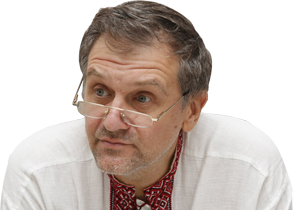European Commissioner for European Neighborhood Policy and Enlargement Negotiations Johannes Hahn has recently criticized Ukraine for failing to comply with the requirements that had been the condition for visa waivers with the European Union. The European Commissioner is primarily concerned with the fact that Kyiv has not yet established a mechanism for verifying and evaluating electronic declarations of assets of Ukraine’s officials.
Johannes Hahn did not say anything that had not already been discussed publically in Ukraine. People in Ukraine are well aware of the fact that e-declarations are a real step forward, and that after disclosure of assets in these declarations, certain conclusions and steps must be made. Ukrainians are also dissatisfied with poor performance by the National Agency for the Prevention of Corruption (NAPC), which has been dragging with e-declaration checks. People are outraged by the fact that no conclusions or real legal steps have yet been made. Therefore, there’s nothing surprising in Hahn’s critique.
Europeans ... will be pressing on Ukraine to move forward in the rule of law and fight against corruption
What will Europeans be doing further in respect of Ukraine? I think they will be pressing on Ukraine to move forward in the rule of law and fight against corruption. This applies to all spheres, not just e-declarations… In order to force Ukraine to move along this path, Europe will use a range of tools, including certain financial obligations.
For example, recently, on November 23, at the meeting of the Eastern Partnership countries, the European People's Party said that financial assistance from the European Union will be linked to the progress of these countries on their reform path.
If reforms drag, the question will arise of the amount of EU’s financial assistance
The position of the West is somewhat ambiguous. On the one hand, the EPP said that it is necessary to put Georgia, Ukraine, and Moldova to the “Eastern Partnership +” group and provide additional incentives for these countries. And this is a real recognition that we are implementing reforms. On the other hand, it has been pointed out that if reforms drag, the question will arise of the amount of EU’s financial assistance.
At the same time, no U-turn on a visa-free travel for Ukrainians across the EU is expected. Such criticism is about raising anxiety levels. The West is not speaking about lifting visa waivers. Such a move would be absolutely unjustified as there are no grounds for it.
Indeed, reforms in Ukraine are going slowly. Indeed, there are problems in the fight against corruption. But at the same time, Ukraine did not violate any basic conditions.
If there are no dramatic negative developments in Ukraine, there will be no grounds for winding up the visa-free regime with the EU
So, if there are no dramatic negative developments in Ukraine, there will be no grounds for winding up the visa-free regime with the EU.
In general, it’s not only the European Union but also all Ukrainians who are concerned over the issues being criticized in Europe. We are interested in e-declaration issue not to “hang in the air”. We want to see quality and swift checks. We are interested in seeing the infighting stop between anti-corruption watchdogs and witnessing a step forward in overcoming corruption. This is exactly what needs to be done in Ukraine now.
Also, the EU expressed dissatisfaction with the adoption in Ukraine of the law on the obligatory online declaration of assets by anti-corruption activists. It seems that the legislation was passed as some kind of revenge to those activists. Apparently, it will not be amended until the end of the year -- the president did initiate changes, but it is clear that the parliament is trying to drag them down. And this, in turn, puts the wedge between the authorities and civil society. After all, it turns out that the government considers civil society not as its ally, assistant, and stimulator for carrying out reforms, but as its adversary. And although both the European Union and the United States have criticized this law, it’s still out there. Given the ongoing political turmoil; in particular, the struggle between different law enforcement agencies, it might well be the case that no wise changes will be possible to adopt. Moreover, the deputies are especially unwilling to do anything about it.
Criticism has long supposed to become an incentive for the authorities to do something in this field. After all, the issue has been discussed for half a year already. The West's overall position is aimed at pushing the Ukrainian authorities to implement reforms and act side by side with civil society. But we understand that within the government there are certain forces that oppose this.
Oleksiy Haran is a Research Director at the Democratic Initiatives Foundation, Professor of Political Sciences at NaUKMA


